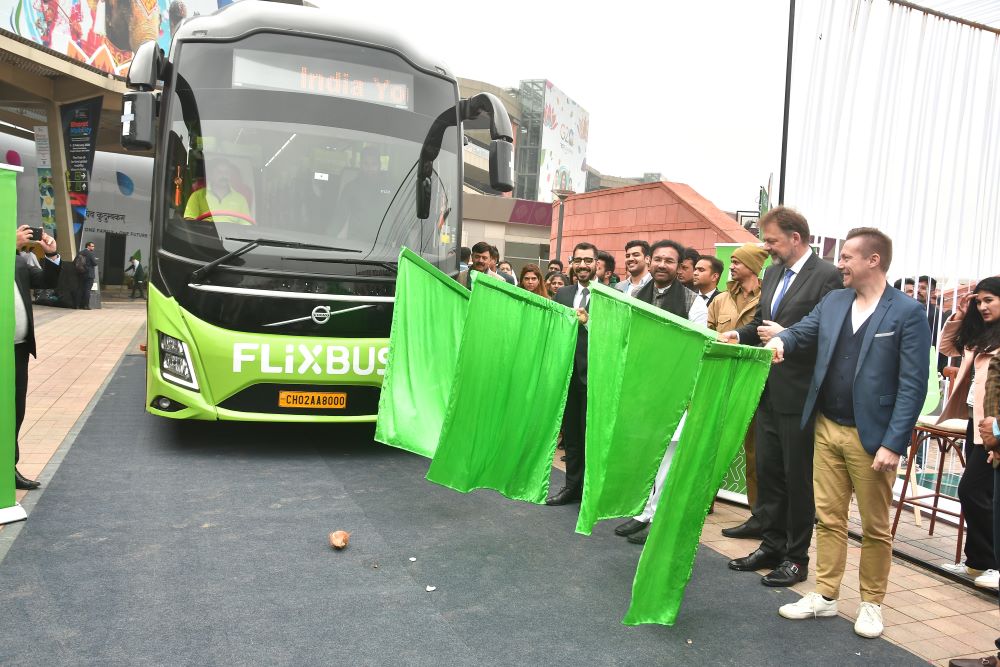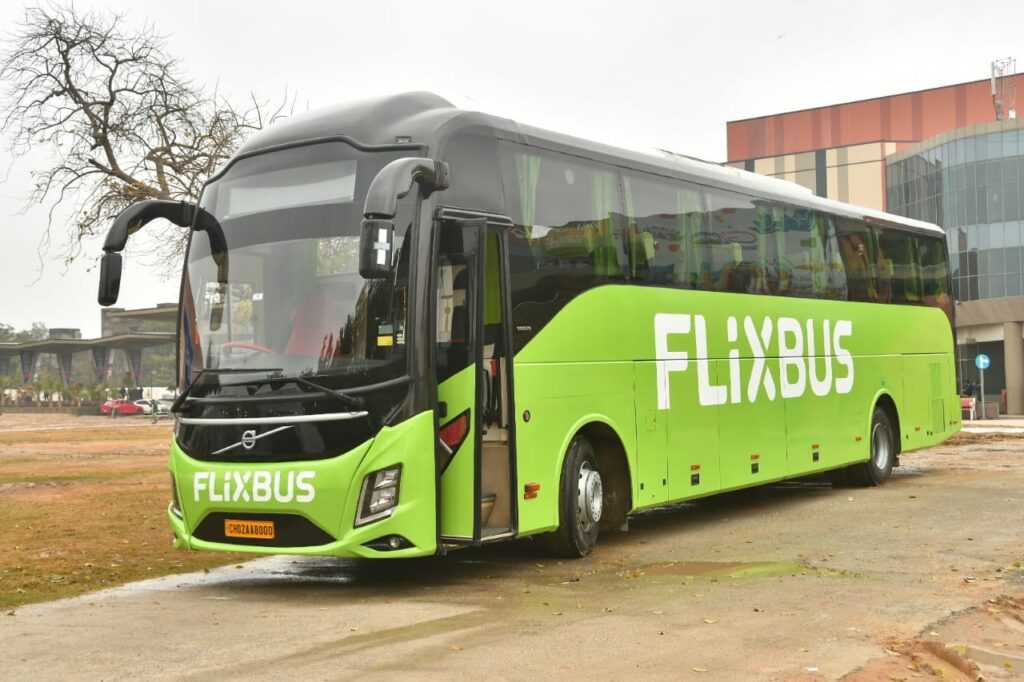First Network to run across Delhi, Himachal, Jammu & Kashmir, Punjab, Rajasthan & Uttar Pradesh, covering 46 destination cities

FlixBus, a global travel-tech leader offering the world’s largest bus network across 42 countries, has announced its arrival in India. In the second biggest bus market in the world, the company promises to revolutionize intercity passenger transportation with convenient traveling at a competitive price and the best-in-class safety standards.
With FlixBus making its debut in the country, a multitude of comfortable, safe, and reliable travel choices are now available for thousands of Indians, connecting cities and routes across New Delhi, Himachal, J&K, Punjab, Rajasthan, and UP.

Tickets for FlixBus India will be available starting today, 1 February, with the first routes starting from February 6th at a special launch price of INR 99 connecting Delhi with Ayodhya, Chandigarh, Jaipur, Manali, Haridwar, Rishikesh, Ajmer, Katra, Dehradun, Gorakhpur, Varanasi, Jodhpur, Dharamshala, Lucknow, and Amritsar. The routes will include 59 stops and more than 200 connections in total.
In strategic collaborations with local bus operators, FlixBus is employing its proprietary tech platform to empower its partners to enhance their business operations. Taking the lead in network planning, revenue management, and yield optimization, FlixBus ensures an efficient and seamless travel experience for passengers and operators alike, committing to quality, safety, consistency, and delivering exceptional customer experience. Moreover, FlixBus is exclusively operating premium bus models equipped with BS6 engines, adhering to stringent emission norms that significantly reduce pollutants, and reinforcing the dedication to environmental sustainability.

The company’s unwavering commitment to passenger safety is evident through innovative measures which it will replicate in the Indian market. Some of the features include gender seating (i.e., seats next to women will be automatically reserved for other women), a 24×7 incident response team, a traffic control ward, 2-point seat belts for all seats, and exclusive FlixBus lounges. These features set new benchmarks for safety and security in the industry.
On launching India operations,André Schwämmlein, CEO of Flix, said, “We are delighted to announce FlixBus’ expansion into India, a large move as we reach our 43rd country and one of the largest bus markets globally. Entering the dynamic Indian market is a huge opportunity for us, filled with anticipation and the recognition of the significant potential to change the mobility landscape in India. Our mission is perfectly fitting what India strives for – sustainable, safe and affordable travel options for all. Acknowledging the growing demand for such services in India, we are committed to upholding consistent quality, safety, and delivering a seamless customer experience in every region we operate.”
Surya Khurana, Managing Director, FlixBus, India, said, “We’re thrilled to introduce our services in India. Our commitment to safety, comfort, and cost-effective journeys make us the global choice for millions exploring diverse destinations. Our success lies in close collaboration with local operators, optimizing for growth and efficiency. We champion shared mobility to reduce congestion and emissions in cities. We’re anticipating a transformation in the Indian intercity travel space, we’re excited to lead the charge, setting a global standard for seamless, reliable, and affordable intercity transport.”
Dr. Philipp Ackermann, Ambassador of the Federal Republic of Germany to India & Bhutan, “The German transportation major Flixbus is coming to India! I am convinced that it is a great opportunity for both of our countries. Both governments cooperate under the umbrella of a Green and Sustainable Development Partnership to modernize the Indian energy sector and to help reduce CO2 emissions in many other sectors, including transportation. Having a private company providing sustainable transportation as a business model and having the reduction of CO2 emissions as part of the company’s DNA is very encouraging. Strengthening collective travel in order to reduce emissions of the transport sector is a global undertaking that requires significant efforts from both the German and Indian Governments, our societies and industries. Making bus travel more convenient and accessible is an important lever to increase the attractiveness of collective transport.”